Building Trust: Best Practices for Electrical Wholesalers in the Digital Age.
In an era where digitalisation is not a luxury but a necessity, the electrical wholesale sector is no exception to this trend. Embracing digital technologies is not only about staying relevant but also about building a foundation of trust with both existing and potential customers. T.N. Robinson Ltd, with a legacy spanning 99 years, is at the forefront of merging traditional wholesaling values with modern digital practices, ensuring a seamless transition into the digital age for both the company and its clientele
Embracing Transparency and Accessibility:
One of the cornerstones of building digital trust is ensuring transparency and accessibility. In the context of electrical wholesalers, this could manifest in several ways. For instance, providing clear and easily accessible information about products, pricing, and availability online can go a long way in building trust. T.N. Robinson Ltd exemplifies this by offering an extensive range of products online along with the option to order or download their catalogue. Moreover, the availability of a Trade Customer account further enhances the accessibility to exclusive discounts and promotional offers, ensuring that customers are always in the loop regarding the latest deals
Ethics and Responsibility:
In the digital realm, adhering to ethical practices and showcasing responsibility towards customer needs and data security is paramount. A well-structured online platform that ensures data privacy and a secure shopping experience is a non-negotiable aspect of building digital trust. The experience and knowledgeable staff at T.N. Robinson Ltd are a testament to the company’s commitment to ethical practices and responsible service delivery.
Privacy, Control and Security:
Privacy and control over personal information, coupled with a secure and reliable online platform, are vital for fostering trust. Ensuring robust cybersecurity measures to protect customer data and providing control over what information is shared can significantly enhance trust. T.N. Robinson Ltd’s emphasis on excellent service, value, and trust is a sturdy platform upon which further digital trust-building measures can be implemented.
Digital Customer Service:
Digitalisation has redefined customer service. A well-designed website, easy navigation, and online customer service are essential for a wholesome customer experience. The digital era demands that electrical wholesalers offer more than just an online catalogue. Features such as online order tracking, customer reviews, and a robust online help and support system are crucial for building digital trust.
Engaging in Digital Wholesale Practices:
The move towards becoming a ‘digital wholesaler’ is about leveraging digital platforms to improve service, reduce costs, and stay relevant in a competitive market.. The digital transformation journey of T.N. Robinson Ltd is a sterling example of how embracing digital wholesale practices can lead to sustainable business benefits. The company’s online presence, coupled with a rich history built on service, value, and trust, sets a solid foundation for building long-term digital trust with customers.
Evaluating E-commerce Technology:
Electrical wholesalers must evaluate e-commerce technology critically to ensure it aligns with their business goals and customer expectations. Best practices in evaluating e-commerce technology vendors are crucial for ensuring a platform that delivers sustainable business benefits.
Top 10 Electrical Wholesalers in the UK: Who Makes the List?
Introduction
If you’re an electrical contractor, electrician, or other electrical professional, you know how important it is to have a reliable and trustworthy electrical wholesaler. A good electrical wholesaler can provide you with the high-quality products you need at competitive prices, as well as the expertise and support to help you get the job done right.
But with so many electrical wholesalers in the UK, it can be tough to know where to start. That’s why we’ve compiled this list of the top 10 electrical wholesalers in the UK, based on factors such as product selection, pricing, customer service, and industry reputation.
Top 10 Electrical Wholesalers in the UK
- Quickbit
Quickbit is one of the leading electrical wholesalers in the UK, with over 20 years of experience in the industry. The company offers a wide range of electrical products from top brands, including Wiska, Wago, Red Arrow Trading, and CTI Electrical. Quickbit is known for its competitive prices, excellent customer service, and fast delivery.
- Rexel
Rexel is a global electrical distributor with a strong presence in the UK. The company offers a comprehensive range of electrical products, including cables, lighting, tools, and accessories. Rexel is known for its technical expertise and its ability to provide solutions for complex electrical projects.
- Scolmore
Scolmore is a leading UK manufacturer of electrical accessories. The company offers a wide range of products, including wiring accessories, lighting control, and fire safety products. Scolmore is known for its high-quality products and its commitment to customer service.
- Edmundson Electrical
Edmundson Electrical is a family-run electrical wholesaler with over 50 years of experience in the industry. The company offers a wide range of electrical products from top brands, including Schneider Electric, Hager, and MK Electric. Edmundson Electrical is known for its competitive
prices and its excellent customer service.
- TLC Electrical
TLC Electrical is a leading UK electrical wholesaler with over 20 years of experience in the industry. The company offers a wide range of electrical products from top brands, including ABB, Siemens, and Eaton. TLC Electrical is known for its technical expertise and its ability to provide solutions for complex electrical projects.
- CED Electrical
CED Electrical is a leading UK electrical wholesaler with over 30 years of experience in the industry. The company offers a wide range of electrical products from top brands, including Legrand, Hager, and Crabtree. CED Electrical is known for its competitive prices and its excellent customer service.
- City Electrical Factors
City Electrical Factors is a leading UK electrical wholesaler with over 60 years of experience in the industry. The company offers a wide range of electrical products from top brands, including Schneider Electric, Hager, and MK Electric. City Electrical Factors is known for its competitive prices and its excellent customer service.
- TradePoint
TradePoint is a leading UK electrical and plumbing wholesaler with over 100 branches nationwide. The company offers a wide range of electrical products from top brands, including Schneider Electric, Hager, and MK Electric. TradePoint is known for its competitive prices and its excellent customer service.
- Screwfix
Screwfix is a leading UK electrical and plumbing retailer with over 700 stores nationwide. The company offers a wide range of electrical products from top brands, including Schneider Electric, Hager, and MK Electric. Screwfix is known for its competitive prices and its convenient shopping experience.
- Toolstation
Toolstation is a leading UK electrical and plumbing retailer with over 500 stores nationwide. The company offers a wide range of electrical products from top brands, including Schneider Electric, Hager, and MK Electric. Toolstation is known for its competitive prices and its convenient shopping experience.
Factors to Consider When Choosing an Electrical Wholesaler
When choosing an electrical wholesaler, there are a few factors to consider:
- Product selection: Make sure the wholesaler offers the range of products you need. This includes considering the types of projects you work on, as well as the brands and products you prefer.
- Pricing: Compare prices from different wholesalers to get the best deal. However, it’s important to remember that price is not the only factor to consider. You should also consider the quality of the products, the wholesaler’s customer service, and their delivery options.
- Customer service: Choose a wholesaler with a good reputation for customer service. This means a wholesaler that is responsive to inquiries, provides accurate and helpful information, and resolves any issues quickly and efficiently.
- Delivery: When choosing an electrical wholesaler, it’s important to consider their delivery options. Some wholesalers offer free delivery on orders over a certain amount, while others charge a delivery fee. Some wholesalers also offer next-day delivery, while others have longer delivery times.
If you need your products quickly, make sure to choose a wholesaler with fast delivery options. However, if you’re not in a hurry, you may be able to save money by choosing a wholesaler with cheaper or free delivery.
Other Considerations
In addition to the factors listed above, there are a few other things to consider when choosing an electrical wholesaler:
- Trade discounts: Many electrical wholesalers offer trade discounts to registered electrical contractors and electricians. If you qualify for a trade discount, be sure to ask about it.
- Account management: Some electrical wholesalers offer account management services. This can be helpful if you have a large account or if you need regular assistance with your orders.
- Technical support: Some electrical wholesalers offer technical support services. This can be helpful if you have a question about a product or need help troubleshooting an issue.
Conclusion
Choosing the right electrical wholesaler is important for your business. By considering the factors listed above, you can choose a wholesaler that offers the products you need at competitive prices, with excellent customer service and delivery options.
Electricians Guide to Finding Wholesale Electricals Online
As an electrician, you know that you need to have a reliable source of electrical supplies. But with so many online electrical wholesalers out there, it can be tough to know where to start. That’s why we’ve put together this guide to help you find the best wholesale electricals online.
Do Your Research
The first step to finding the right online electrical wholesaler is to do your research. Read reviews, compare prices, and look for companies that offer the products and services you need. It’s also important to make sure that the company is reputable and has a good track record.
Here are some things to look for when researching online electrical wholesalers:
- Price: Make sure to compare prices from different wholesalers before you make a purchase.
- Product selection: Make sure the wholesaler has the products you need.
- Shipping: Find out how much shipping costs and how long it takes for the wholesaler to ship your order.
- Customer service: Read reviews to see what other customers have said about the wholesaler’s customer service.
- Reputation: Make sure the wholesaler is reputable and has a good track record.
Know What You’re Looking For
Before you start shopping, take some time to think about what you need. What kind of electrical products are you looking for? What are your budget constraints? Once you know what you’re looking for, you can start narrowing down your options.
Here are some things to consider when you’re shopping for wholesale electricals:
- The type of electrical products you need: Are you looking for light bulbs, switches, wiring, or something else?
- The quantity of electrical products you need: How many of each product do you need?
- Your budget: How much money are you willing to spend?
- The delivery time: When do you need the electrical products?
Use the Right Keywords
When you’re searching for online electrical wholesalers, it’s important to use the right keywords. This will help you find the companies that are most relevant to your needs. For example, if you’re looking for electrical supplies for a commercial project, you might use keywords like “commercial electrical supplies” or “industrial electrical supplies”.
Here are some tips for choosing the right keywords:
- Think about the products you’re looking for. What are the specific terms that people would use to search for those products?
- Use a keyword research tool to help you find the most popular keywords.
- Use a variety of keywords to reach a wider audience.
Read the Fine Print
Before you make a purchase, be sure to read the fine print. This includes the terms and conditions, shipping policies, and return policies. It’s important to understand what you’re agreeing to before you hand over your money.
Here are some things to look for in the fine print:
- Return policy: How long do you have to return the product if you’re not satisfied?
- Shipping policy: How much does it cost to ship the product? How long does it take for the product to arrive?
- Terms and conditions: What are the terms of the sale? Are there any hidden fees?
Get Multiple Quotes
Don’t just settle for the first online electrical wholesaler you find. Get multiple quotes from different companies before you make a decision. This will help you ensure that you’re getting the best possible price.
Here are some tips for getting multiple quotes:
- Ask for quotes from at least 3 different companies.
- Be clear about what you’re looking for and your budget.
- Compare the quotes carefully to find the best deal.
Build Relationships
Once you’ve found a few online electrical wholesalers that you like, take the time to build relationships with them. This will help you get better prices and service in the long run.
Here are some tips for building relationships with online electrical wholesalers:
- Be a loyal customer.
- Order regularly.
- Be responsive to their communications.
- Give them feedback.
Stay Up-to-Date
The world of online electrical wholesalers is constantly changing. To stay ahead of the curve, be sure to stay up-to-date on the latest trends and developments. This will help you make informed decisions about where to shop.
Online Account Portal | Free Account Management
Great news. T.N. Robinson is excited to announce the launch of our Online Account Portal. Our newly designed Online Account Portal is here to provide you with an intuitive and hassle-free experience for managing your account. Not to mention that our Online Account Portal is 100% free. You can find everything you need through the Online Account Portal and it is completely paperless. You are helping the environment!
We understand that managing your account is an essential part of your interaction with us, and our goal is to make it easier and more convenient for you. With the Account Management Portal, you can access various features and functionalities that will streamline your Online Account Portal management. Let’s take a closer look at the benefits and how you can get started!
Benefits of the Online Account Portal
Account History: Keep track of all your past interactions, purchases, and transactions in one place. With the Online Account Portal, you will have access to a comprehensive account history, which allows you to review and analyse your past engagements with T.N. Robinson.
Statements: No more digging through emails or filing cabinets to find your account statements. The portal provides you with easy access to your account statements, so you can view, download, or print them whenever you need them.
Order History: Stay on top of your orders effortlessly. The portal enables you to monitor your order history, check delivery statuses, and reorder items with just a few clicks.
Quote History: If you’ve requested quotes from us in the past, the portal will store them securely for your reference. Accessing previous quotes will be a breeze, helping you make informed decisions for future purchases.
User-Friendly Experience: We understand that your time is valuable, and that’s why we’ve designed the Online Account Portal with ease of use in mind. Navigating through the portal is simple, and you’ll find it to be an intuitive platform to manage your account effectively.
Optional Service: We respect your preferences, and the use of the Online Account Portal is entirely optional. You have the freedom to choose whether you want to utilise the portal or stick with your existing account management methods.
Getting Started with the Online Account Portal
1. Request Portal Login: To get started with our free Online Account Portal, all you need to do is fill in the sign-up form below.
2. Instructions and Set-Up: Once we receive your request, we’ll promptly send you a set of instructions to complete the portal’s setup. The process is quick, and our team will be available to assist you if you encounter any questions or issues.
Example Dashboard
Below is an example of what your Online Account Portal dashboard might look like:
The TNR Commitment to Your Experience
At T.N. Robinson, we’re committed to enhancing your experience with us, and the Online Account Portal is another step towards achieving that goal. We believe that managing your account should be a breeze, and this new portal will exceed your expectations by providing you with easy access to your account history, statements, order history, and quotes—all in one convenient place.
Remember, the use of the portal is entirely optional, and our team is always available to support you through whichever account management method you prefer. Take advantage of this new service today and simplify your account management with T.N. Robinson!
If you have any questions or need further assistance, feel free to reach out to a member of our dedicated team, who will be more than happy to help. We appreciate your ongoing support and look forward to serving you through our new Online Account Portal.
Account Portal Sign Up
Should You Buy Electrical Supplies In-Store or Online?
In today’s fast-paced world, convenience plays a significant role in our purchasing decisions. The rise of online shopping has revolutionised the way we buy products, including electrical supplies. However, there remains a large number of people who prefer the traditional brick-and-mortar shopping experience. So, the question arises: should you buy electrical products and supplies in-store or online? In this blog, we’ll explore the advantages and disadvantages of both options to help you make an informed decision.
In-Store Shopping: The Advantages
Expert Advice and Personal Assistance:
One of the primary benefits of shopping in-store is the availability of expert advice. Staff members with industry knowledge can provide valuable guidance on a range of electrical projects, product selection, installation, and compatibility. This personalised assistance can be invaluable when making a purchase, especially for those with limited electrical experience.
Physical Inspection:
When shopping in-store, you have the opportunity to see, touch, and feel the products. This allows you to assess the quality, size, and other features firsthand before making a purchase. It can be particularly helpful when shopping for accessories or for items like cables, where flexibility and thickness may be essential factors to consider.
Immediate Availability:
If you’re working on a project with a tight deadline, in-store shopping offers your clients the advantage of immediate availability. You can shop and pick up the required items on the spot, without waiting for shipping and delivery.
In-Store Shopping: The Disadvantages
Limited Stock and Variety:
Physical stores often have limited shelf space, which means they may not stock a comprehensive range of all brands and products. This can be particularly frustrating if you’re looking for a specific item or brand that isn’t available in your local store.
Higher Prices:
Brick-and-mortar stores typically have higher overhead costs, such as rent, utilities, and staff salaries. These costs are often passed on to the customer in the form of higher prices.
Inconvenience:
In-store shopping can be time-consuming and inconvenient. Travelling to the store, navigating through aisles, and waiting in queues can eat into your precious time. This may not be an ideal scenario for those with busy schedules or limited mobility.
Online Shopping: The Advantages
Vast Product Range:
One of the most significant benefits of online shopping is the extensive range of products available at your fingertips. Online retailers can offer customers a more comprehensive selection of both lighting and electrical supplies, including niche products and brands that may be hard to find in physical stores.
Competitive Prices:
Online retailers often have lower overhead costs, which can result in more competitive prices for customers. Additionally, the ability to quickly compare prices across multiple websites can help you find the best deals and shop around with ease.
Convenience:
Online shopping allows you to research and purchase electrical supplies from the comfort of your home, at any time of day or night. With just a few clicks, you can have the items delivered to your doorstep, eliminating the need for travel and reducing the time and money you spent shopping.
Customer Reviews:
When shopping online, you have free access to a huge range of customer reviews and ratings, providing valuable insight into the quality and performance of a product. This can help you make a more informed decision and avoid purchasing subpar products.
Online Shopping: The Disadvantages
Lack of Personal Assistance:
When shopping online, you may not have the same level of personal assistance and expert advice available in physical stores. While some online retailers offer chat or phone support, it’s free and not always as immediate or in-depth as speaking to a knowledgeable staff member in person.
Inability to Inspect Products:
With online shopping, you cannot physically inspect the products before purchasing. This can make it challenging to gauge the quality, size, and other features of the item.
Shipping and Delivery Times:
While online shopping offers the convenience of home delivery, you may have to wait several days for your items to arrive. If you’re working on a time-sensitive project, this delay could be problematic.
Electrical Supplies Near Me – Conclusion
In the debate between in-store and online shopping for electrical products, lighting, and supplies, there’s no one-size-fits-all answer. The best choice depends on your personal preferences, needs, and circumstances. If you value expert advice, immediate availability, and the ability to physically inspect products, in-store shopping may be the best choice for you.
However, if convenience, product variety, and competitive pricing are your top priorities, you might find online shopping more appealing. In the end, it’s about finding a balance that suits you best. Happy shopping!
A Complete Guide to Electrical Cabling
In the realm of home renovation or construction, understanding the intricacies of electrical cabling is paramount. This guide will provide you with a comprehensive overview of the subject, helping to clarify the complex world of cables, wires copper conductors, and circuits that power our homes and offices. For more detailed information, you can also visit the Wikipedia page on electrical wiring.
Understanding Electric Cables
Power cables, at its most basic, refers to the insulated conductors used to transmit electricity from the source to the devices that use it. These cables are made up of three essential components: the conductor, the insulation, and the protective sheath.
Conductor: This is the wire that carries the electrical current. It’s typically made of copper or aluminium because of their high conductivity.
Insulation: Surrounding the surface of the conductor is the insulation, a material typically made of plastic or rubber. Its role is to prevent electric shocks and to keep the electricity flowing in the right direction.
Protective Sheath: Lastly, there’s the protective, metal sheath, which encases the insulated conductors. This outer sheath provides additional protection against physical damage and environmental conditions.
Types of Electrical Cables
Understanding the different types of electrical cables is essential, as each has its unique characteristics and uses. Here are some of the most common types:
Single-core Cables
These cables have only one conductor and are mainly used for transmission of low voltage applications, such as lighting circuits.
Multi-core Cables
As the name suggests, these have multiple conductors, each insulated from one point to another. They’re used in a range of high power applications, like power supply to buildings.
Coaxial Cables
These are used for transmitting high-frequency signals, such as those for televisions and internet connections.
Ethernet Cables
These are used for network connections, providing a wired internet connection.
Flexible Cable
Flexible cables, as their name suggests, are designed for situations where flexibility is required. These cables can bend easily without damaging the conductors or insulation, making them perfect for portable devices, machinery, and equipment that need to move during operation. They consist of multiple thin strands or lengths of wire, as opposed to a single, thick wire, which allows them to bend without breaking. Common types of flexible cables include extension leads, appliance cords, and power supply cords. In addition, flexible cables are often used in industrial applications, robotics manufacturing, and other environments where cables need to withstand frequent movement or vibration.
Steel Wire Armoured Cables
Steel Wire Armoured (SWA) cables are a unique type of electrical cable designed for heavy-duty applications. They are constructed with a layer of solid steel wire armouring, which provides exceptional mechanical protection, making them suitable for use in harsh environments and areas with a high risk of physical damage. This makes SWA cables ideal for outdoor use, for direct burial, within cable ducts, or for installations where the cable may be exposed to mechanical stress. Despite their rugged construction, these cables still maintain a degree of flexibility, making them versatile for various industrial and commercial applications. They are often used in all power transmission networks, including underground, external and internal projects, as well as in cable networks, power stations, and industries.
Safety Regulations and Standards
In the UK, electrical installations must adhere to the British Standard BS 7671:2018, also known as the ‘Wiring Regulations’. This standard, published by the Institution of Engineering and Technology (IET), outlines the safety requirements for electrical installations.
It’s important to note that all electrical work in the UK, apart from some minor tasks, must be carried out by a competent person. This could be a professional electrician or someone who has undertaken appropriate training.
Professional Electrical Cable Installation and Maintenance
While some minor electrical tasks can be performed by a DIY enthusiast, most electrical work should be left to professionals. Improper installation can lead to serious safety issues, including electrical fires and electrocution. A certified electrician can ensure the work is done safely and meets all relevant regulations.
Regular maintenance of your electrical wiring is also crucial to protect and ensure its safe operation. Over time, cables can deteriorate, leading to potential safety hazards. Having your wiring inspected and tested by a professional every few years can help to prevent these issues.
Conclusion
Understanding electric cable can seem like a daunting task, but with a bit of knowledge and understanding, it becomes far more approachable. However, remember that while it’s beneficial to understand the basics, any significant electrical work should be left to the professionals. Safety should always be the first priority when dealing with electricity.
For more in-depth information, please visit the Wikipedia page on electrical wiring.
What are the different types of flexible cables?
Flexible cables are essential components of modern electrical systems. These cables are used to connect different electrical devices and transmit power or signals from one point to another. The design of a flexible cable makes it easy to bend and twist, allowing it to be used in a variety of applications. There are several types of flexible cables available, and each type has specific features that make it suitable for particular applications. In this blog post, we will explore some of the different types of flexible cables.
PVC Flexible Cables
PVC (Polyvinyl Chloride) flexible cables are the most common type of flexible cable used in domestic and industrial applications. They are made from a thermoplastic material, which makes them flexible and durable. PVC flexible cables are used to transmit low-voltage signals, and they are ideal for indoor use. These cables are also resistant to moisture and abrasion, which makes them suitable for harsh environments.
Rubber Flexible Cables
Rubber flexible cables are another popular type of flexible cable. These cables are made from natural or synthetic rubber, which makes them flexible and resistant to mechanical stress. Rubber flexible cables are used in industrial applications where there is a need for high resistance to oil, chemicals, and other harsh substances. These cables are also resistant to extreme temperatures, which makes them suitable for use in outdoor applications.
Silicone Flexible Cables
Silicone flexible cables are made from silicone rubber, which gives them high resistance to temperature changes and other environmental factors. These cables are used in applications where there is a need for high flexibility and high-temperature resistance. Silicone flexible cables are commonly used in the food and beverage industry, as they are resistant to food particles and easy to clean.
Teflon Flexible Cables
Teflon flexible cables are made from Polytetrafluoroethylene (PTFE), which is a synthetic fluoropolymer. Teflon is a popular material for flexible cables because it is resistant to chemicals, moisture, and extreme temperatures. These cables are commonly used in applications where there is a need for high resistance to harsh substances, such as in the chemical and pharmaceutical industries.
Coaxial Cables
Coaxial cables are a type of flexible cable that is used to transmit high-frequency signals. These cables are composed of a central conductor, which is surrounded by a dielectric insulator, a conductive shield, and an outer insulating jacket. Coaxial cables are commonly used in television and radio broadcasting, as well as in telecommunications systems.
Fiber Optic Cables
Fibre optic cables are a type of flexible cable that is used to transmit light signals. These cables are composed of thin strands of glass or plastic, which are surrounded by a protective jacket. Fibre optic cables are commonly used in telecommunications systems, as they are capable of transmitting large amounts of data over long distances with minimal signal loss.
Armoured Cables
Armoured cables are a type of flexible cable that is reinforced with a protective outer layer. This layer is usually made from steel or aluminium, which provides additional protection against mechanical stress, moisture, and other environmental factors. Armoured cables are commonly used in outdoor applications, such as in construction sites and industrial plants.
In conclusion, there are several types of flexible cables available, each with its specific features and advantages. PVC, rubber, silicone, Teflon, coaxial, fibre optic, and armoured cables are some of the most common types of flexible cables used in various applications. It is essential to choose the right type of flexible cable for your application to ensure maximum performance and safety. Consult with a professional to determine the best type of flexible cable for your needs.
Self Driving Cars Explained
The Future & Self Driving Cars
The future of self-driving cars looks very promising. Advances in technology have made it possible for cars to be able to detect objects in the environment, process data in real time, and even make decisions on their own. This technology has the potential to drastically reduce the number of car accidents and make transportation more efficient, safe, and accessible for everyone. In addition, self-driving cars have the potential to revolutionize the way we get around and reduce our dependence on fossil fuels. We are still in the early stages of this technology, but with continued research and development, the future of self-driving cars looks very bright.
What are self driving cars?
Self-driving cars are vehicles equipped with advanced technologies such as sensors, cameras, and algorithms that allow them to navigate and drive on their own without the need for a human driver. Self-driving cars use Artificial Intelligence (AI) to detect their surroundings and make decisions on how to respond in different situations. This technology can potentially reduce traffic congestion, make roads safer, and offer a more convenient, comfortable, and efficient way to get around.
How does a self driving car work?
A self driving car, also known as an autonomous vehicle, uses a combination of sensors, cameras, and advanced algorithms to detect its environment and navigate without human input. The car uses sensors to detect obstacles, lane lines, and other road markings. Cameras provide a 360-degree view of the surrounding area and detect objects such as other vehicles and pedestrians. Advanced algorithms process the data from the sensors and cameras to make decisions about how to control the car, such as when to turn, accelerate, or brake. Self driving cars are a rapidly growing technology that promises to revolutionize the way we travel.
Pros & Cons of Self Driving Cars
The potential benefits of self-driving cars are vast and exciting. They have the potential to reduce the number of traffic accidents, provide easier access to transportation for those who cannot drive, increase the efficiency of public transit, reduce commuting time, and reduce traffic congestion. Additionally, self-driving cars could be a great way to reduce pollution and carbon emissions.
However, there are also potential drawbacks to self-driving cars. They are expensive to maintain and could be vulnerable to cyber-attacks, which could lead to dangerous situations. Additionally, there are still some legal questions that need to be answered, such as who is liable in the event of an accident. Finally, self-driving cars could be difficult to regulate, and it will take time for them to become a part of our transportation infrastructure.
The six levels of a self driving car
The six levels of a self driving car are as follows:
- Level 0 – No Automation
- Level 1 – Driver Assistance
- Level 2 – Partial Automation
- Level 3 – Conditional Automation
- Level 4 – High Automation
- Level 5 – Full Automation
At Level 0, the driver is in full control of the car and has to be actively involved in the driving process. At Level 1, the car can take over certain control functions such as steering and braking. At Level 2, the car can take over more control functions such as accelerating and lane-keeping. At Level 3, the car can take over all driving functions in certain conditions, such as on the highway. At Level 4, the car can take over all driving functions for all conditions. Finally, at Level 5, the car can handle all driving functions in all conditions without any input from the driver.
Prepare for the future with EV Chargers
EV chargers are an important part of preparing for the future of transportation. By investing in EV charging technology, you can help ensure that your home, business, or community is ready for the shift in transportation that is already happening. EV charging stations are becoming increasingly available, so it is important to plan ahead and make sure you have the right equipment and infrastructure to support the growing trend of electric vehicles. With the right EV charger, you can take advantage of the green energy revolution and help create a better, more sustainable future for everyone.
5 THINGS YOU CAN DO TO SAVE ENERGY & MONEY
With the cost of living increasing and energy and fuel prices on the rise, we thought we’d take a quick look at a few ways you can save energy and money at home, in the workplace and even on the road.
1. Turn off the lights!
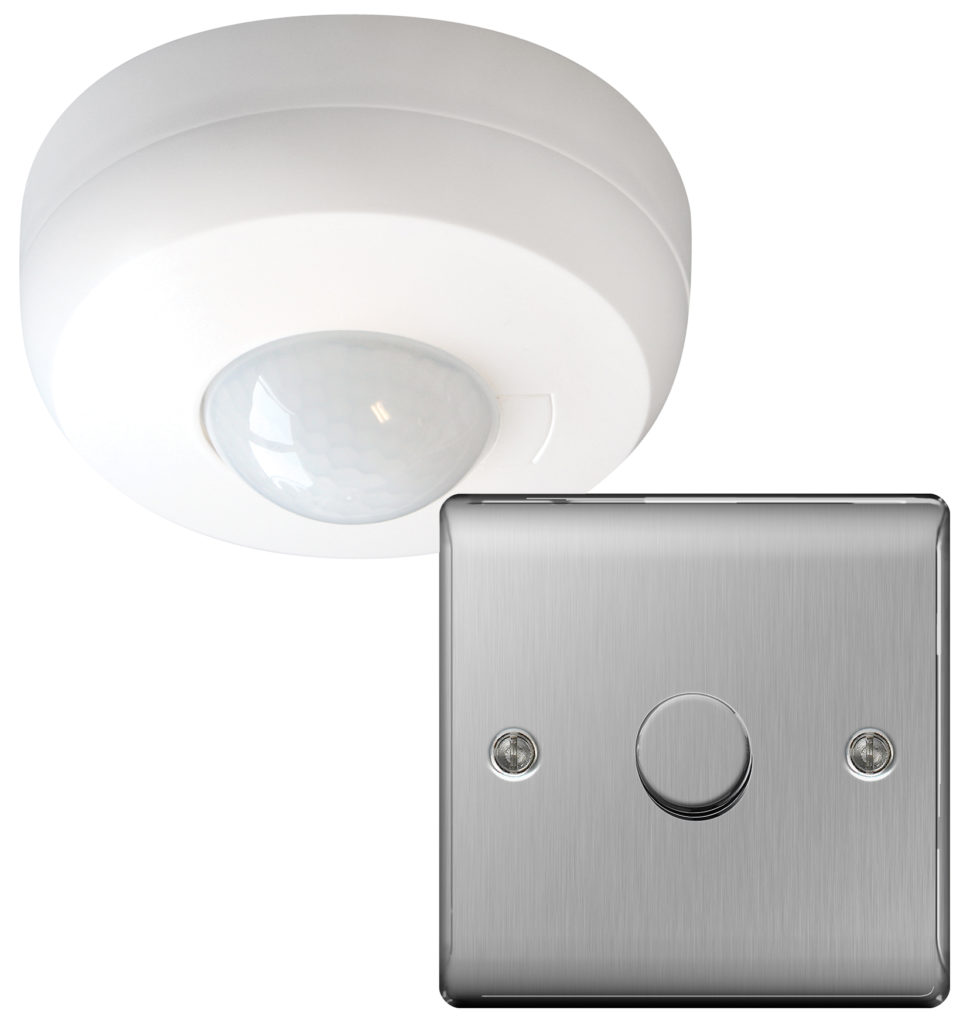 Always turn lights off when leaving a room. The typical household could save almost £20 a year just by doing something as simple as getting in the habit of switching off the lights as you leave the room. Be aware of how many lights you have on in a room. If you have the main light on, do you need the lamp on too?
Always turn lights off when leaving a room. The typical household could save almost £20 a year just by doing something as simple as getting in the habit of switching off the lights as you leave the room. Be aware of how many lights you have on in a room. If you have the main light on, do you need the lamp on too?
In some settings it may be worth installing dimmer switches or motion/occupancy sensors to save costs. Modern light dimmers save you energy, and they also extend the life of your light bulbs. Motion sensors work by turning the lights off when they no longer sense anyone in the room, protecting against energy loss from leaving lights on when no one is using them.
Dimmer switches, motion sensors and timer switches are available from your local TNR branch.
2. Switch to LED Lighting
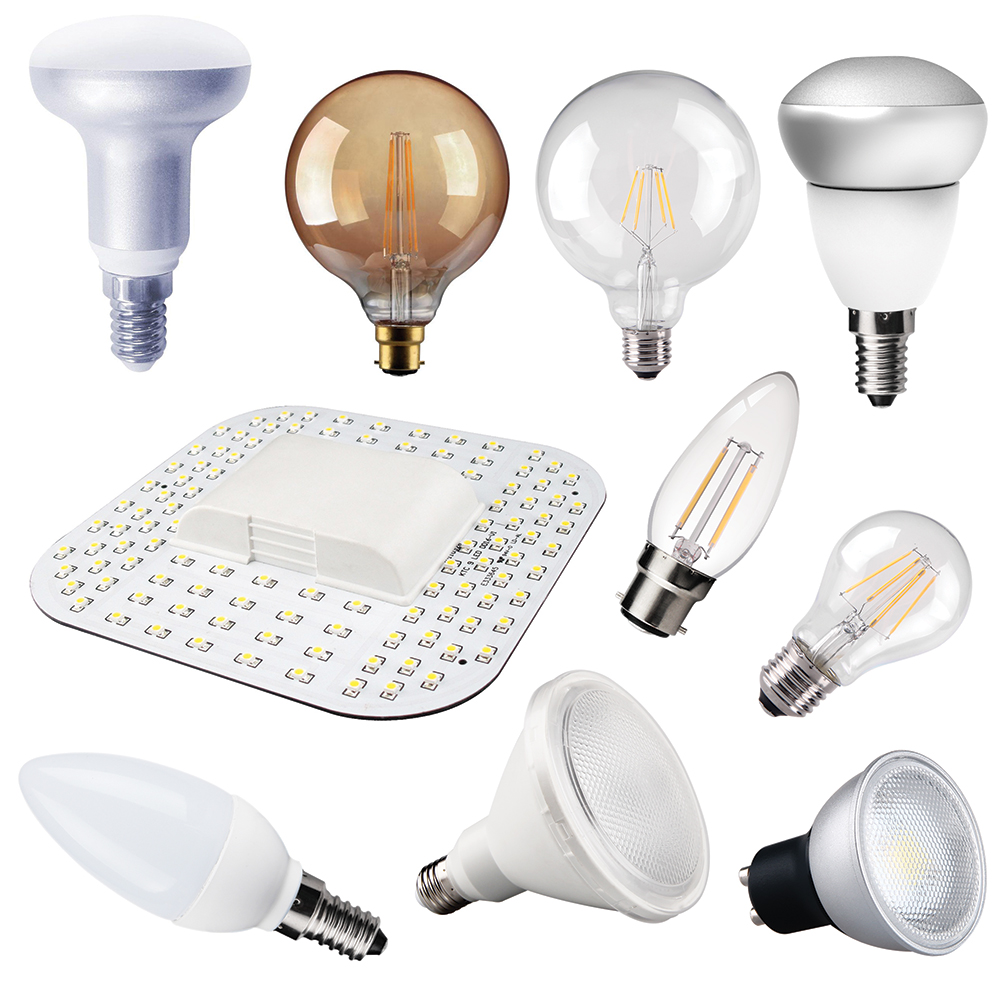 Switching your building’s lighting to LEDs is a quick, easy and a low-cost win to reduce your electricity costs and switching has the potential to reduce your lighting costs by as much as 90%.
Switching your building’s lighting to LEDs is a quick, easy and a low-cost win to reduce your electricity costs and switching has the potential to reduce your lighting costs by as much as 90%.
According to Energy Saving Trust you can save £2-3 per year for every traditional halogen bulb you switch to a similarly bright LED bulb. Replacing a 50W halogen with an LED equivalent could cut your energy costs by £75 over the lifetime of the bulb, not including the cost of replacing the halogen bulbs you would have used. Energy-efficient lighting helps lower electricity bills and carbon dioxide emissions, all without reducing the quality of light in our homes.
Each of our branches stock a superb range of LED lamps and tubes for every application.
3. Set your room thermostat
Did you know that heating and hot water accounts for over half of what you spend on your energy bills?
A room thermostat prevents your heating system from using more fuel than it needs to. It will turn the heating on until the room reaches the temperature you have set and then off until the temperature drops below your programmed temperature.
The thermostat should be set to the lowest comfortable temperature, typically between 18°C and 21°C. You don’t need to turn your room thermostat up when it is colder outside; the house will heat up to the set temperature whatever the weather, however it may take a little longer on colder days. Turning up your room thermostat doesn’t make your home heat any faster.
Setting your thermostat just 1°C lower could result in a saving up to £80 a year on your heating costs!
Speak to your local TNR branch about our range of thermostats.
4. Replace old heaters and bathroom radiators
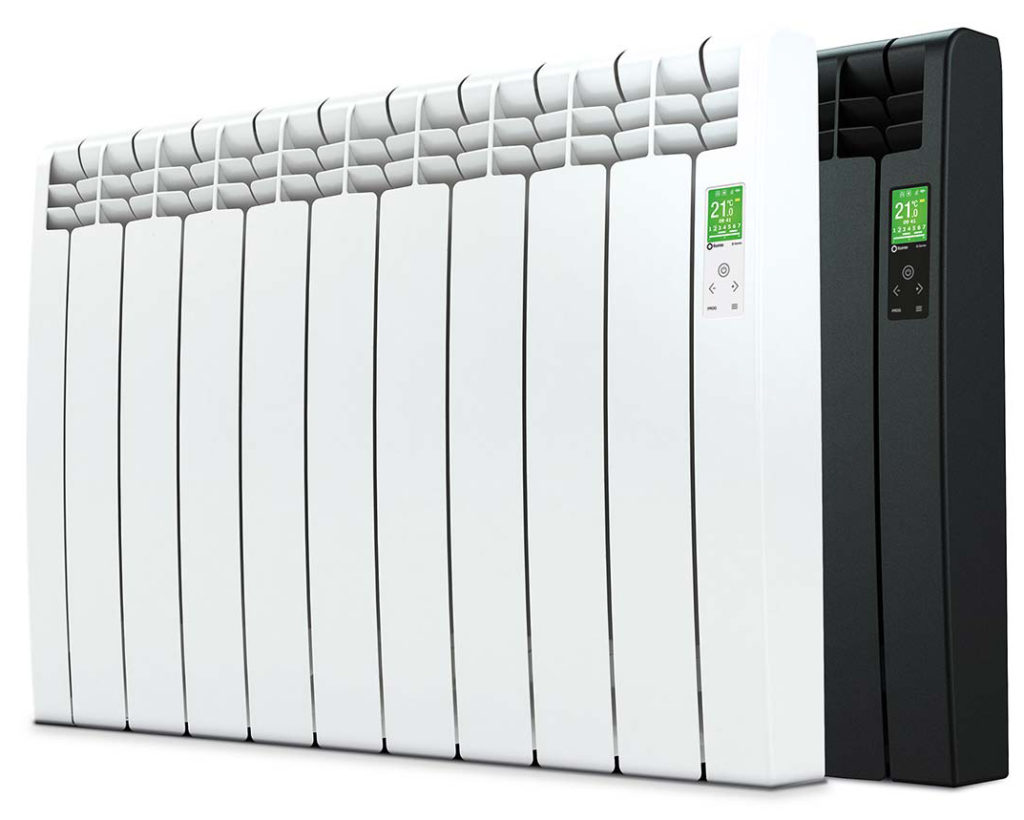 Whether it’s heating options for your home, office or hotel, Rointe provide technologically advanced, energy efficient electric heating systems that create comfortable properties without excessive consumption or unnecessary costs.
Whether it’s heating options for your home, office or hotel, Rointe provide technologically advanced, energy efficient electric heating systems that create comfortable properties without excessive consumption or unnecessary costs.
Replacing your old, outdated storage heaters with new, stylish and energy efficient electric radiators with technology such as Wi-Fi control and smart energy software will lower your energy bills and reduce the impact on the environment.
Rointe Smart Heating is available from your local TNR branch, take control of your heating, anytime, anywhere.
5. Go electric!
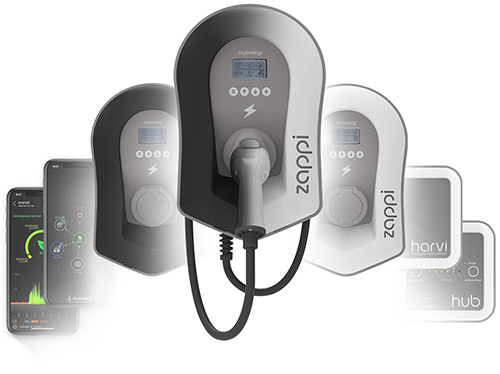 Electric Vehicles (EVs) are an increasingly attractive option, due to the expanding choice of models available and intensifying concerns about air quality and climate change. While the initial upfront purchase price can be higher, this is usually offset by benefits such as lower running costs, free parking, no congestion charge and an increased resale value.
Electric Vehicles (EVs) are an increasingly attractive option, due to the expanding choice of models available and intensifying concerns about air quality and climate change. While the initial upfront purchase price can be higher, this is usually offset by benefits such as lower running costs, free parking, no congestion charge and an increased resale value.
If you’ve already got an EV it’s also worth noting that the cost of using public chargers has recently increased, making it much more expensive to charge your car in public, compared to using your own personal charger at home. Installing a Zappi (Britain’s best-selling eco-smart electric vehicle charging device) could save you hundreds in the long run.
Click here for more information on the zappi and the myenergi range of accessories
Free Energy Surveys
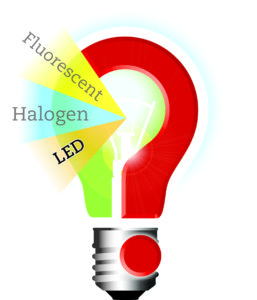 If you’d like some further advice, you may benefit from big savings on your energy consumption with one of our free energy surveys.
If you’d like some further advice, you may benefit from big savings on your energy consumption with one of our free energy surveys.
We pinpoint where savings are available. We assess your energy usage based on your currently installed products and use further site information such as room sizes, required lux or heat levels, hours of usage etc. to design an appropriate scheme and to offer simple to understand payback calculations.
Efficient technologies consume less energy and often result in a more comfortable working/learning environment, as well as lower energy bills, and can reduce both short and long term maintenance over the lifetime of the product.
- Improve business finances
- Save money and prolong life of appliances
- Reduce your carbon footprint and energy bills
Take the first step to saving money and call your local branch today!
The Magic of the EDA Awards!
Huge congratulations to our Commercial Director, Simon Thwaite who enjoyed a magical night at the Electrical Distributors’ Association’s (EDA) Annual Education & Training Awards in London on Thursday 3 March 2022.
Simon was presented with an Investor in Training Award for championing the EDA Product Knowledge Modules.
Over 500 guests attended the dinner, hosted by celebrity magician, Ben Hanlin. After performing his own brand of mind-bending magic, Ben presented Investor in Training trophies to just nine hand-picked, high performing leaders from EDA wholesalers and manufacturers.
Everyone at T.N. Robinson would like to offer their warmest congratulations to Simon on this well-deserved award.

(Left to right) Chris Ashworth, EDA President; Simon Thwaite; Perry Jones, EDA Apprenticeships Plus; Ben Hanlin, Magician.

 same day delivery
same day delivery
 20,000+ stock, great deals!
20,000+ stock, great deals!
 Experienced staff on hand
Experienced staff on hand









